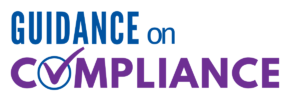Working through compliance requirements with Skilled Nursing regulations often takes some “out of the box” thinking. As we are now two years into the changes in regulations, there remain regulatory tags that continue to show deficient practices that will require providers to “think outside the box.”
In our continuing F-Tag Series we will offer suggestions on how to avoid, or correct existing deficiencies in these areas.
Freedom from Abuse, Neglect and Exploitation (F-Tags 600 – 610) continue to rise to the top of the cited deficiency list across the country. Education for new hires and throughout an employee’s tenure is critical to eliminate deficiencies in this area.
Here are several suggestions on how to avoid deficient practices:
- Educate all new employees on what the facility policy states and what constitutes abuse, neglect or exploitation. Reinforce to every employee that it is their responsibility of each to be advocates for all residents at all levels. Utilize examples on what abuse might look like for an older adult as well as education on the Older Adult Protective Services Act (OAPSA), and why that is important in senior living.
- Remember, abuse not only involves physical actions, but it also involves unlawful physical and chemical restraints, as well.
- The inaccurate or incomplete administration of medications for a resident may also be considered an abusive act.
- Assure that all levels of employees know the process within your facility of how to report suspected abuse. Think about how a housekeeper might be educated on reporting, if they witness or are told by a resident, of an abusive incident, or how a dietary employee can report if they are a contracted employee. Also, think about how you will assure that any agency staff will be educated on your process of abuse and abuse reporting.
- Use role playing in your education sessions, for employees, and make the sessions interactive.
- Utilize the services of the Ombudsman to assist in educating the staff.
- Document, document, document. Give yourself credit for the hard work you are doing by documenting it in training records (both facility and individual employee). Make sure to record the contents of the abuse training, who is responsible for leading the training, the amount of time the training took place and any pre/post testing or follow up education required.
As we move forward to Phase III roll out of the regulations, the competency component related to abuse education will be a critical component of regulatory compliance.
If you need assistance in preparing or delivering education to your staff, LW Consulting, Inc. can assist you in accomplishing a well-rounded education program.

